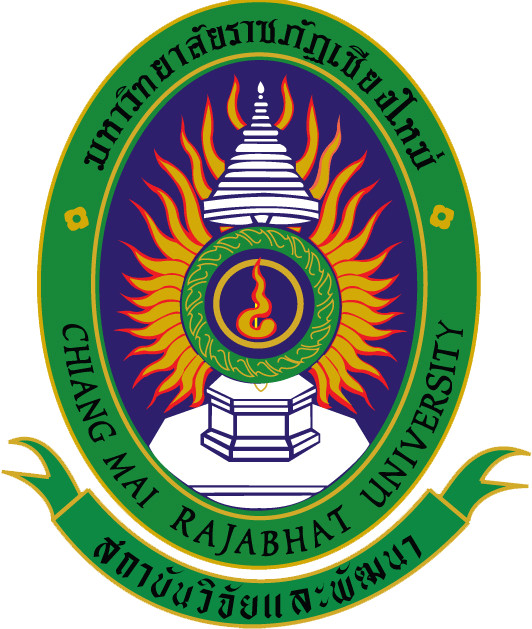
ระบบสารสนเทศงานวิจัย สถาบันวิจัยและพัฒนา มหาวิทยาลัยราชภัฏเชียงใหม่
Research Information System(RIS)
การศึกษาแนวทางและมาตรการทางกฎหมายสิ่งแวดล้อมในการระงับข้อพิพาทกรณีการแย่งชิงทรัพยากรน้ำระหว่างเกษตรกรผู้ใช้น้ำในพื้นที่ระบบนิเวศเกษตรลุ่มแม่น้ำแม่วาง จังหวัดเชียงใหม่
อาจารย์กฤษฎา เอี่ยมละมัย
คณะมนุษยศาสตร์และสังคมศาสตร์
คำสำคัญ :
เลขทะเบียน :
1527-65-HUSO-TSRI
บทคัดย่อ
การวิจัยในครั้งนี้เป็นการศึกษาถึงปัญหาการแย่งชิงทรัพยากรด้านสิ่งแวดล้อมระหว่างชุมชน ลุ่มน้ำแม่วางตอนบนและชุมชนลุ่มแม่น้ำวางตอนล่าง เพื่อศึกษาแนวทางการสร้างข้อตกลงชุมชนระหว่างกลุ่มผลประโยชน์ในท้องถิ่น ข้อบัญญัติท้องถิ่นในการจัดสรรทรัพยากรน้ำ ทรัพยากรป่าไม้ในชุมชนลุ่มน้ำแม่วาง ศึกษาแนวทางในการแก้ปัญหาการสร้างมลพิษแก่สิ่งแวดล้อมในชุมชนผู้ใช้น้ำลุ่มน้ำแม่วาง ให้ทราบถึงแนวทางการพัฒนาข้อตกลงท้องถิ่นเกี่ยวกับการระงับข้อพิพาทด้านสิ่งแวดล้อม ศึกษาถึงกฎหมาย แนวทางการสร้างข้อตกลงชุมชนระหว่างกลุ่มผลประโยชน์ในท้องถิ่นหรือข้อบัญญัติท้องถิ่นในการจัดสรรทรัพยากรน้ำ ทรัพยากรป่าไม้ในชุมชนลุ่มน้ำแม่วาง
การวิจัยมีกลุ่มประชากรที่ทำการศึกษาคือกลุ่มตัวอย่างเกษตรกรผู้ใช้น้ำ 6 ตำบล 49 หมู่บ้าน ในอำเภอแม่วาง จังหวัดเชียงใหม่ โดยการออกแบบสอบถาม จำนวนรวมกันไม่ต่ำกว่า 300 คน โดยการทำประชุมกลุ่มย่อย (Focus group) กลุ่มตัวอย่างเกษตรกร จำนวน 2 กลุ่ม จำนวน 50 คนโดยใช้การสุ่มตัวอย่างแบบเจาะจงแบบกลุ่ม จำนวน 100 คน โดยทำการศึกษาระยะเวลาตั้งแต่เดือนตุลาคม 2564 ถึงเดือนกันยายน 2565 โดยมีเครื่องมือการวิจัยได้แก่การวิจัยเอกสารการสัมภาษณ์ และการใช้แบบสอบถาม
การวิจัยมีการวิเคราะห์ข้อมูลโดยผ่านกรอบแนวคิดซึ่งใช้ทฤษฎีธรรมาภิบาลในการจัดการน้ำ (Water Governance) ทฤษฎีวงกลมความขัดแย้งของคริสโตเฟอร์ มัวร์ เป็นเครื่องมือในการวิเคราะห์ความขัดแย้งจากการใช้ทรัพยากรน้ำ การตรวจสอบความเที่ยงตรงของเนื้อหา ตรวจสอบข้อมูลวิจัยเชิงคุณภาพ โดยใช้การตรวจสอบแบบสามเส้า ผลการศึกษาพบว่าเกษตรกรในอำเภอแม่วางมีปัญหาในการแย่งชิงทรัพยากรน้อย ร้อยละ 37.9 ซึ่งเป็นไปตามสมมติฐานการวิจัยบางส่วนว่าเกษตรกรผู้ใช้ประโยชน์จากทรัพยากรสิ่งแวดล้อมในชุมชนลุ่มน้ำแม่วางมีปัญหาการแย่งชิงทรัพยากรด้านสิ่งแวดล้อมระหว่างชุมชนลุ่มน้ำแม่วางตอนบนและชุมชนลุ่มแม่น้ำวางตอนล่าง การแก้ปัญหาจัดสรรน้ำของชุมชนในพื้นที่อำเภอแม่วางอาจใช้แนวทางการสร้างข้อตกลงชุมชนระหว่างกลุ่มผลประโยชน์ในท้องถิ่นหรือข้อบัญญัติท้องถิ่นในการจัดสรรทรัพยากรน้ำ
การศึกษามาตรการทางกฎหมายในการแก้ปัญหาการแย่งชิงทรัพยากรด้านสิ่งแวดล้อมระหว่างชุมชนลุ่มน้ำแม่วางตอนบนและชุมชนลุ่มแม่น้ำวางตอนล่าง พบว่า พระราชบัญญัติกำหนดแผนและขั้นตอนการกระจายอำนาจให้แก่องค์กรปกครองส่วนท้องถิ่น ทำให้การแก้ปัญหาการแย่งชิงทรัพยากรด้านสิ่งแวดล้อมระหว่างชุมชนยังไม่ได้ผลเท่าที่ควร มีความจำเป็นต้องตรากฎหมายในการบริหารจัดการน้ำเพื่อการพัฒนาอย่างยั่งยืน โดยเพิ่มอำนาจให้องค์กรผู้ใช้น้ำมีอำนาจในการจัดการข้อพิพาทสำหรับการแย่งชิงทรัพยากรด้านสิ่งแวดล้อมระหว่างชุมชนในภาวะน้ำแล้งและภาวะน้ำท่วมได้ด้วย
สำหรับแนวทางในการแก้ปัญหาการสร้างมลพิษแก่สิ่งแวดล้อมในชุมชนผู้ใช้น้ำลุ่มน้ำแม่วางมีว่าควรออกกฎหมายที่เป็นเอกภาพที่ใช้ในการบริหารจัดการมลพิษทั่วทั้งประเทศ เพื่อแก้ไขปัญหาความไม่มีเอกภาพเกี่ยวกับการบริหารจัดการน้ำ จัดตั้งองค์กรบริหารจัดการทรัพยากรน้ำและของเสียในชุมชนโดยใช้แนวคิด 3R (Reduce Reuse and Recycle: 3Rs) ซึ่งมุ่งเน้นการจัดการขยะมูลฝอย ณ ต้นทาง การออกข้อบัญญัติท้องถิ่นในการบริหารจัดการน้ำและที่ดิน รวมถึงป้องกันการเผา
แนวทางการสร้างข้อตกลงชุมชนระหว่างกลุ่มผลประโยชน์ในท้องถิ่น ข้อบัญญัติท้องถิ่นในการจัดสรรทรัพยากรน้ำ ทรัพยากรป่าไม้ในชุมชนลุ่มน้ำแม่วางและปรับปรุงข้อบกพร่องทางกฎหมายที่เกี่ยวข้องกับการแก้ปัญหาการบริหารจัดการน้ำ เห็นควรให้ใช้แนวทางการระงับข้อพิพาทตามจารีตประเพณีท้องถิ่น และใช้กระบวนการยุติธรรมชุมชนเข้ามาใช้เพื่อแก้ไขปัญหา นอกจากนี้ แนวทางแก้ไขปัญหาการจัดการปัญหาไฟป่าหมอกควันซึ่งเกิดจากการเผาซากเหลือทางการเกษตรมี 3 วิธี คือ เตาเผาขยะชีวมวล ธนาคารใบไม้ และสร้างเทศบัญญัติหรือธรรมนูญชุมชน เพื่อลดการเผาในที่โล่งในท้องถิ่น
Abstract
This research aims to study the problem of competing for environmental resources between communities. Upper Mae Wang River Basin and Lower Mae Wang River Basin Communities To study ways to create community agreements between local interest groups. Local provisions for the allocation of water resources Forest resources in Mae Wang watershed communities to study ways to solve the problem of environmental pollution in the community of water users of the Mae Wang Basin. To know the guidelines for the development of local agreements on environmental dispute resolution. Study the law. Guidelines for creating community agreements between local interest groups or local provisions for the allocation of water resources Forest resources in Mae Wang watershed communities the research population was a sample of farmers who used water in six sub-districts and 49 villages in Mae Wang District. Chiang Mai Province by query design the total number of not less than 300 people by conducting a focus group meeting. Two sample groups of 50 farmers were selected using a group-specific random sampling of 100 people. The study period is from October 2021 to September 2022, with research tools including document research, interviews, and questionnaires.
The research has analyzed the data through a conceptual framework that uses the theory of governance in water management (Water Governance) and Christopher's Conflict Circle Theory. Moore was instrumental in analyzing the conflicts over water resource use. Verifying the integrity of the content Check the qualitative research data. Using a triangular examination, the study found that farmers in Mae Wang District had less competition for resources at 37.9 percent, partly based on the research hypothesis that farmers who exploited environmental resources in Mae Wang River Basin communities had problems in competition for resources—the environment between the upper
Mae Wang River basin community and the lower Mae Wang River basin community. Solving community water allocation problems in Mae Wang District may use the approach of creating a community agreement between local interest groups or local ordinances for the allocation of water resources.
A study of legal measures to solve the competition for environmental resources between the upper Mae Wang River Basin and the lower Mae Wang River Basin communities found that the Act establishes plans and procedures for decentralizing power to local government organizations. Thus, solving the competition for environmental resources between communities is not as effective as it should be. It is necessary to enact a law on water management for sustainable development. By empowering water user organizations to manage disputes over environmental resource competition between communities in times of drought and flooding,
For ways to solve the problem of pollution to the environment in the water user community of the Mae Wang Basin, it is said that a unified law should be enacted for the management of pollution throughout the country. to solve the problem of inconsistency in water management Establish an organization to manage water resources and waste in the community using the 3R concept (Reduce, Reuse, and Recycle: 3Rs), which focuses on solid waste management at the source and issuing local regulations on water and land management. Including preventing burning.
Guidelines for creating community agreements between local interest groups Local provisions for the allocation of water resources Forest resources in Mae Wang watershed communities and improve legal flaws related to water management solutions. Using the dispute resolution method according to local customs was deemed appropriate. and use the community justice process to solve the problem. In addition, there are three ways to solve the problem of forest fire and haze caused by burning agricultural residues: biomass incinerators, leaf banks, and creating bylaws or community statutes. to reduce local open burning.
ไฟล์งานวิจัย
เล่มงานวิจัยฉบับสมบูรณ์ (อ.กฤษฎา) ลายน้ำ.pdf
ข้อมูลการนำไปใช้ประโยชน์
9 19 ส.ค. 2565
สำนักงานคณะกรรมการส่งเสริมวิทยาศาสตร์ วิจัยและนวัตกรรม (สกสว.)
สำนักงานคณะกรรมการส่งเสริมวิทยาศาสตร์ วิจัยและนวัตกรรม (สกสว.) ชั้น 14 อาคาร เอส เอ็ม ทาวเวอร์ 979/17-21 ถนนพหลโยธิน แขวงสามเสนใน เขตพญาไท กรุงเทพฯ 10400
02 278 8200
callcenter@trf.or.th, webmaster@trf.or.th